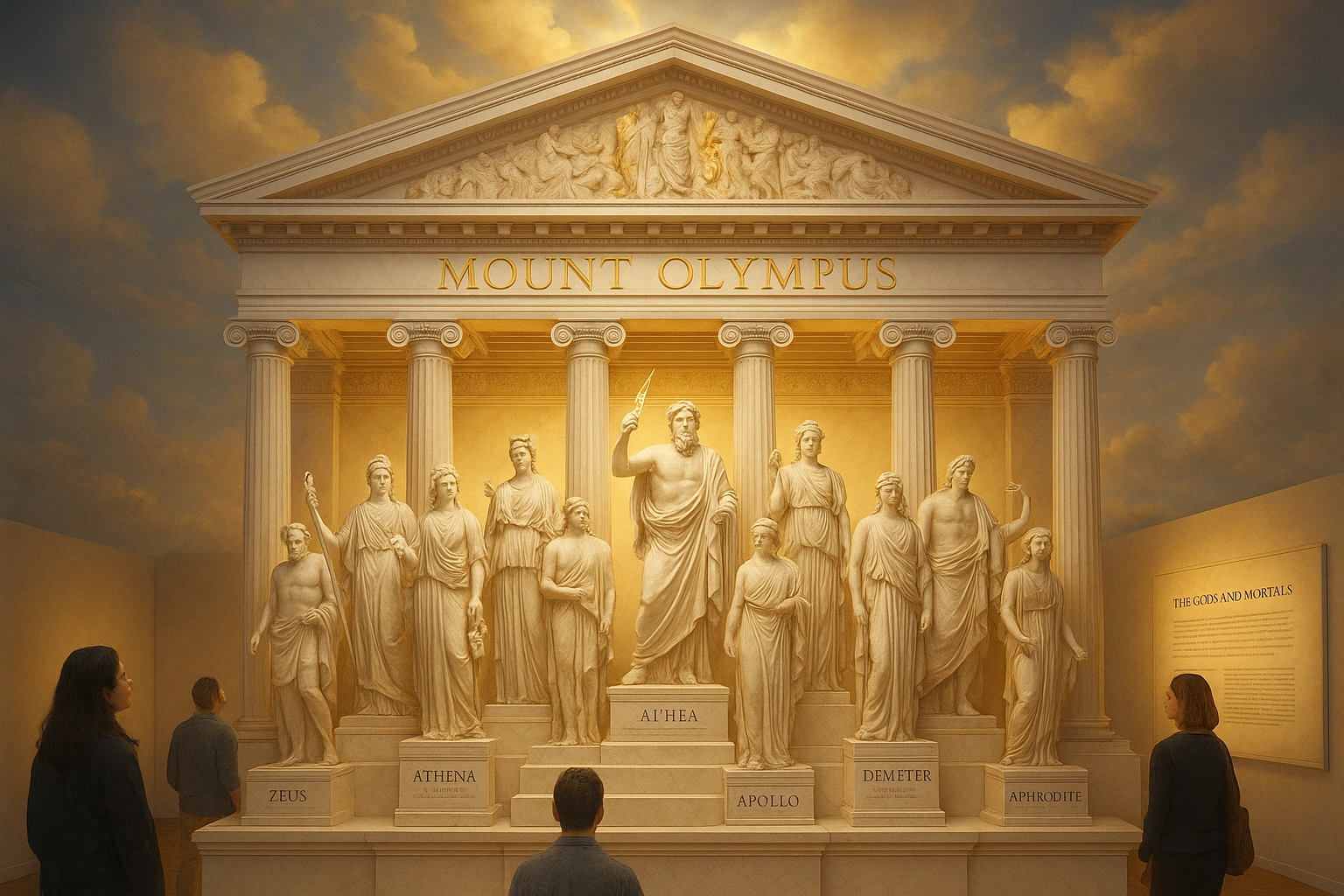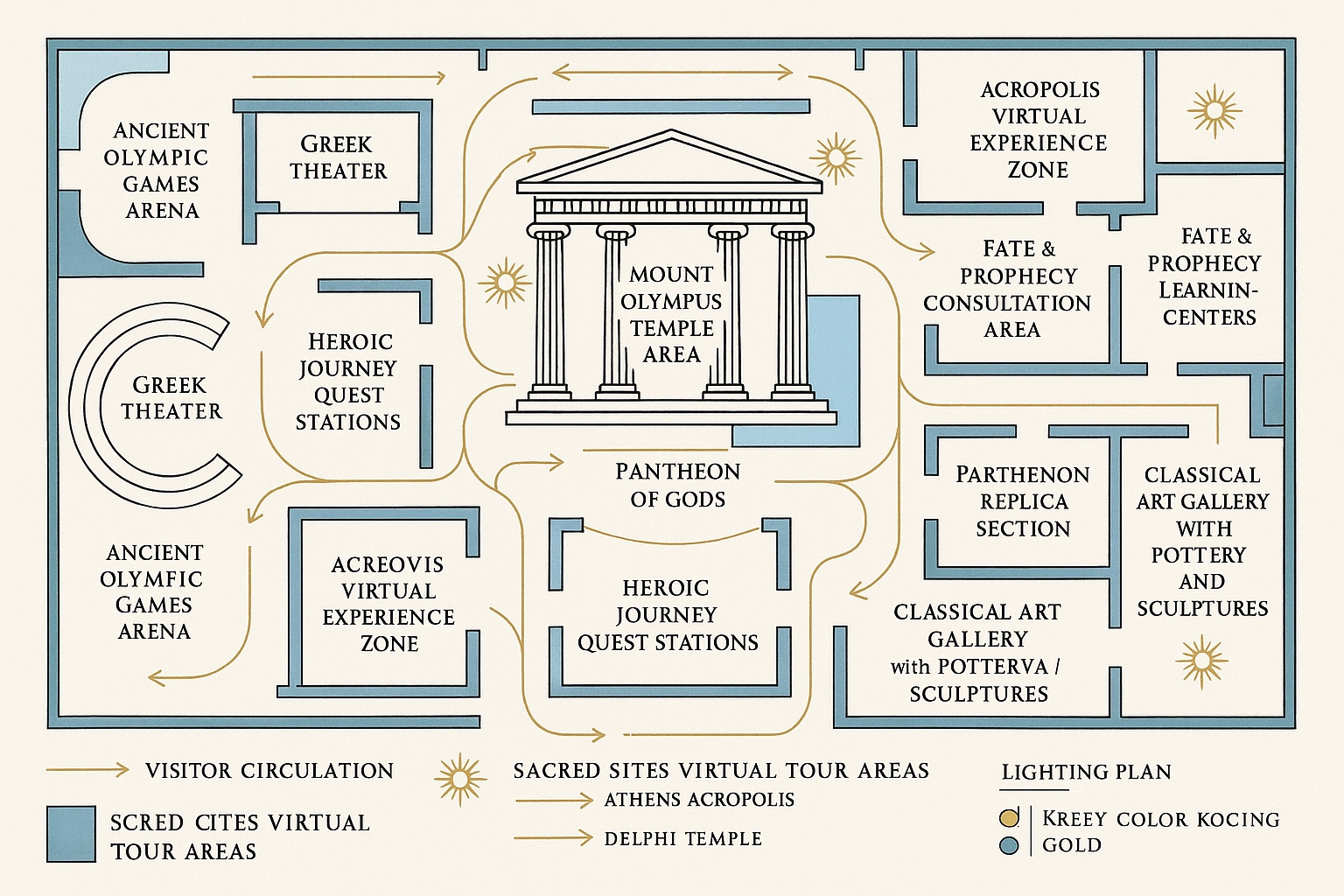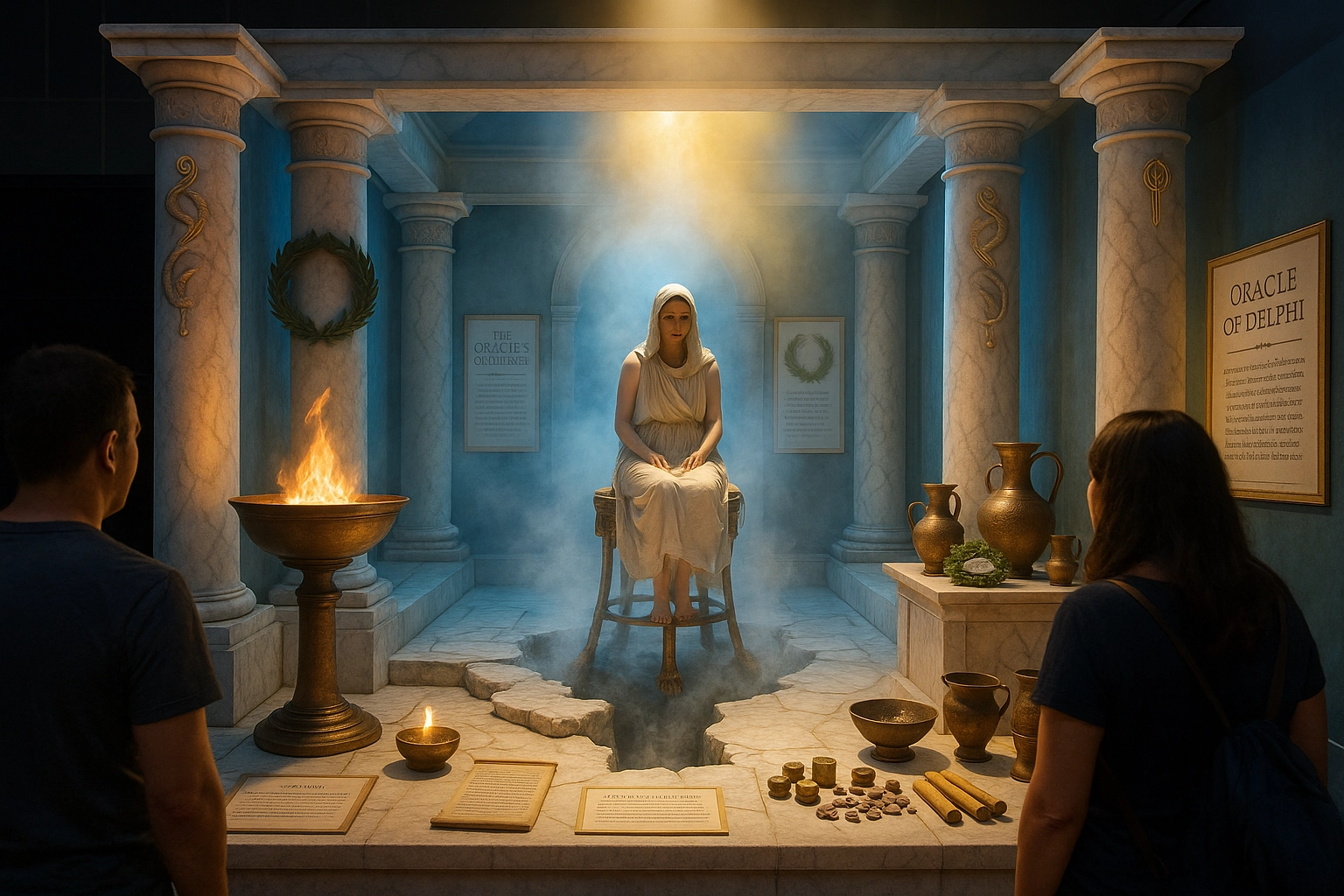Greek Mythology Exhibition
Discover the epic tales and profound wisdom of ancient Greek mythology through our immersive exhibition experience
Exhibition Layout & Experience

Exhibition Floor Plan
Interactive layout showing Olympian halls, hero galleries, and mythical creature displays

Main Exhibition Hall
Featuring Mount Olympus replica, ancient artifacts, and interactive myth stations

Sacred Temple Gallery
Authentic temple reconstructions showcasing ancient Greek worship and oracle traditions
Historical Roots & Origin
Greek mythology arose from the religious and cultural traditions of Bronze Age Greece (c. 3000–1100 BCE), absorbing influences from Minoan, Mycenaean, and neighboring civilizations. Its legends and gods evolved through centuries of oral storytelling before being systematized in literary works.
Formation & Development
Greek religious beliefs crystallized between the 9th and 6th centuries BCE as poets like Homer and Hesiod recorded epic tales and genealogies of gods, heroes, and mortals. City-states developed unique cults while sharing a pan-Hellenic pantheon centered on Mount Olympus.
Key Figures & Luminaries
Zeus (Jupiter)
King of the gods, ruler of the sky, thunderbolt bearer.
Athena
Goddess of wisdom, crafts, and just warfare.
Apollo
God of prophecy, music, healing, and the sun.
Core Concepts & Beliefs
Polytheism
Pantheon of immortal gods ruling over nature and society.
Fate (Moira)
Life's course determined by the Fates.
Arete
Pursuit of personal excellence and virtue.
Hubris and Nemesis
Dangers of pride before gods and punishment.
Fundamental Principles
Balance of Fate and Free Will
Struggle between destiny and personal choice.
Harmony with Cosmic Order
Living in tune with natural and divine laws.
Heroic Excellence
Pursuit of glory and immortal fame.
Xenia (Hospitality)
Sacred law of reciprocal generosity.
Sacred Symbols
Thunderbolt (Zeus)
Symbol of divine power and authority.
Aegis and Owl (Athena)
Symbols of wisdom and protection.
Trident (Poseidon)
Symbol of dominion over seas and earthquakes.
Laurel Wreath (Apollo)
Symbol of victory and divine inspiration.
Major Rites & Rituals
Animal Sacrifices
Sacred offerings at temple altars to honor gods.
Oracular Consultations
Seeking divine guidance at Delphi and other shrines.
Olympic Games
Athletic competitions honoring Zeus.
Eleusinian Mysteries
Secret initiation rites for Demeter and Persephone.
Global Influence & Cultural Impact
Western Foundation
Greek mythology is the root of Western literature, art, philosophy, and science. Its stories have inspired drama, visual arts, psychoanalysis, and modern storytelling worldwide.
Cultural Unification
Greek myths unified diverse city-states, legitimized leadership, and explained natural phenomena. They provided the basis for civic festivals, moral lessons, and classical education.
Mediterranean Legacy
Following Alexander the Great, Greek mythology spread throughout the Mediterranean, Black Sea, and Hellenistic world, leaving a lasting legacy from Anatolia to Italy and North Africa.
Key Spiritual Texts
Homer's Iliad and Odyssey
Epic tales of heroes and gods
Hesiod's Theogony
Origin and genealogy of the gods
Homeric Hymns
Sacred songs to various deities
Greek Tragedies
Plays by Aeschylus, Sophocles, Euripides
Sacred Sites & Monuments
Mount Olympus
Mythical home of the twelve Olympian gods
Delphi
Apollo's sanctuary and oracle site
Acropolis of Athens
Parthenon and temples to Athena
Olympia
Sanctuary of Zeus and ancient Olympic Games
Memorable Ancient Wisdom
"Know thyself."— Inscribed at the Temple of Apollo at Delphi